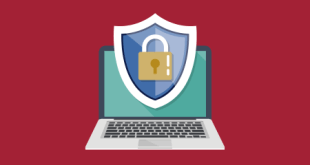Traditional cybersecurity strategies have always focused on protecting the fixed endpoints from cyber-threats. What many users fail to realize is that Mobile devices have also now hugely come under the endpoint list and securing them differs significantly in comparison to protecting desktops and laptops. Even though mobile devices face similar threats as desktop computers, the approach to protecting them is different. According to a survey 1 out of every 50 enterprise users are phished through their mobile device, with 87% of mobile phishing attacks occurring outside of email. Despite the fact that mobile operating systems are more resilient, cyber-attackers are increasingly targeting them, as iOS, Android, and Chrome OS devices contain a lot of sensitive and personal data. By the end of 2023, more than 50% of businesses will have replaced older antivirus products with EPP (Endpoint Protection Platform) and EDR solutions that facilitate prevention with detection and response. This is where Lookout’s Mobile Endpoint Security helps in addressing the ever-evolving mobile security requirements.
“The freedom of accessibility provided by mobile devices comes with risks. It is difficult to trust any device as we continue to work outside the reach of legacy perimeter security. Mobile users require access from wherever they are while also ensuring that their sensitive data is protected. Lookout, an integrated endpoint-to-cloud security company, also offers mobile endpoint security. Lookout Mobile Endpoint Security (MES) is designed to meet the mobile security needs of hundreds of thousands of endpoints. The mobile security market is all about partnerships, integrations, and ecosystems,” said DR Goyal, Vice President – Technology at RAH Infotech.
A common attack vector uses mobile malware which may include spyware, banking trojans, and rootkits. Malware can be delivered through any of the cellular, Wi-Fi and Bluetooth connections being used by mobile devices. As employees are increasingly using unmanaged personal smartphones and tablets for work, Mobile Device Management (MDM) cannot provide complete coverage. Traditional vulnerability management cannot fill this gap as it relies on devices attaching to the office or network in public places rather than home Wi-Fi or cellular networks. Mobile Endpoint Security through its cybersecurity capability blocks users from downloading or accessing unauthorized or insecure apps. It uses encryption to prevent data loss and enables organizations to quickly detect malware and other security threats. Lookout’s Mobile Endpoint Security is supported by a Security Graph feature that is powered by AI that protects enterprises from known and unknown threats. When a threat is detected it provides a step-by-step instruction to investigate the problem in order to fix it. With a mobile endpoint security system like Lookout, organizations can also benefit from tools like detection and response and endpoint monitoring, which can identify and block more advanced security threats.
“In India, we’ve seen that organizations typically have strong security solutions on their desktops, servers, and laptops but lack equal protection for mobile devices. Some organizations have invested in mobile device management (MDM) for authentication and administration of devices. However, these solutions don’t provide protection against the most threatening issues like mobile phishing attacks, network-based attacks, and malware,” said Surojit Dasgupta , Country Manager , India and SAARC for Lookout. “Today, almost 85% of mobile phishing attacks reach the victim outside of email. Attackers use social media, SMS, third-party messaging apps, gaming and even dating apps to phish their victims. Securing iOS, Android, and ChromeOS devices is imperative to protect enterprise data as employees use these devices for both personal and work reasons, which exposes the data to additional risk. Protecting these devices from phishing attacks and malicious apps will mitigate the risk of attackers gaining unauthorized access to your most valuable data.”
To be effective at stopping data breaches, security teams need comprehensive data for mobile devices similar to what they have for servers, desktops and laptops. Mobile has become a major endpoint being used by employees from executive to C-Suite, but the focus from an endpoint security perspective has largely remained on desktops and laptops. It’s critical for employees to stay vigilant, use best security practices, and not underestimate the value and sensitivity of the data being shared across mobile devices.
 Newspatrolling.com News cum Content Syndication Portal Online
Newspatrolling.com News cum Content Syndication Portal Online







